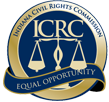INDIANAPOLIS – The Indiana Civil Rights Commission’s (ICRC) Deputy Director Akia Haynes announced today that there is probable cause to believe that a former employee of the Howard County Sherriff’s Department in Kokomo, Ind. was denied a light duty assignment and later terminated shortly after returning from medical leave due to a serious health condition.
At all times relevant to the Complaint, Complainant worked as a Correctional Officer with the Howard County Sherriff’s Department. During his employment, Complainant applied and was approved for FMLA leave due to a serious health condition for the period of August 20, 2012 through November 22, 2012.
On or about November 14, 2012, Complainant obtained a doctor’s note releasing him for light duty work on or about November 19, 2012 for a period of eight weeks. However, Respondent asserted that it did not provide light duty work, denied Complainant’s request, and terminated his employment on or about November 23, 2012, approximately six months before he would qualify for retirement from Respondent.
Despite Respondent’s assertion that it does not provide light duty work, it later admitted that at least two employees had been placed in light duty positions because of injuries. Further, evidence shows that certain assignments such as central control, mail delivery, inspection, and others could be considered light duty. Thus, based upon the aforementioned, probable cause exists to believe that a discriminatory practice occurred in this instance.
In order to prevail, Complainant must show that: (1) he had a disability or was perceived to have a disability as defined under the applicable laws; (2) Respondent was aware of Complainant’s disability; (3) Complainant requested a reasonable accommodation; and (4) Respondent unreasonably delayed or denied Complainant’s request for a reasonable accommodation.
A finding of probable cause does not resolve a Civil Rights Complaint. Rather, it means the State has concluded its preliminary investigation and determined there is sufficient evidence to support reasonable suspicion that the Indiana Civil Rights Law has been violated. Indiana Civil Rights Law provides remedies, including compensatory damages and injunctive relief, such as changes in the employer’s policies and training.
The Indiana Civil Rights Commission enforces the Indiana civil rights laws and provides education and services to the public in an effort to ensure equal opportunity for all Hoosiers and visitors to the State of Indiana. For more information, contact Brad Meadows, ICRC Deputy Director – External Affairs, at (317) 232-2651.
